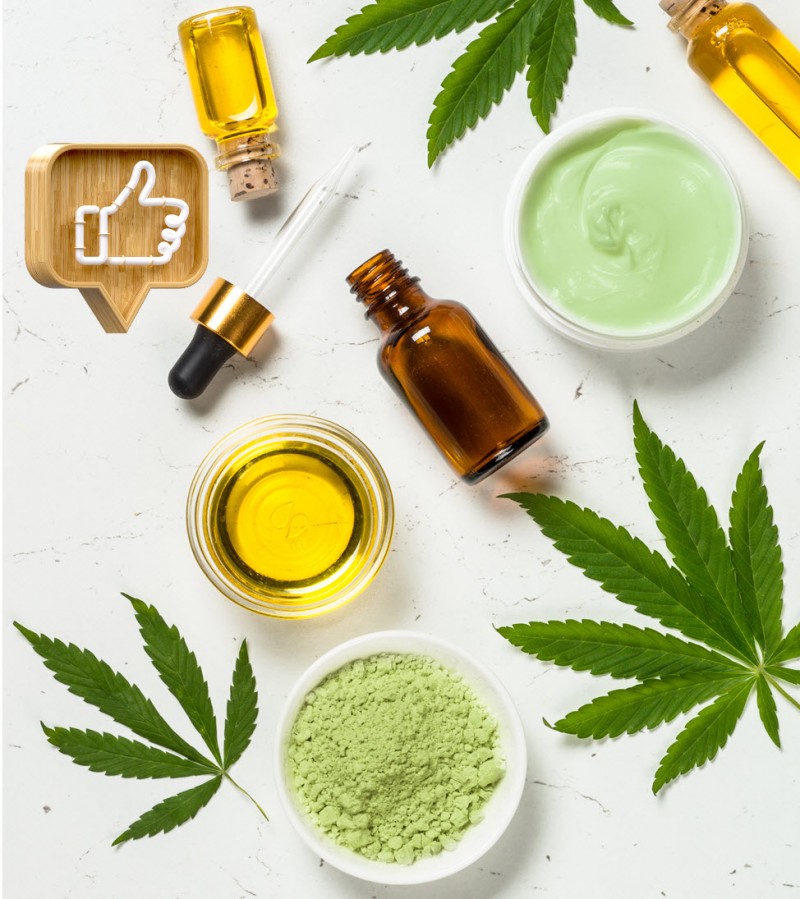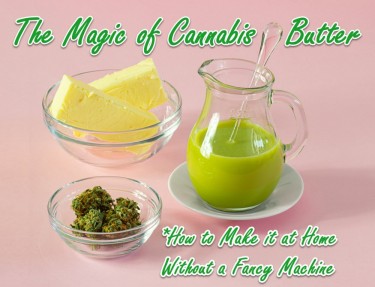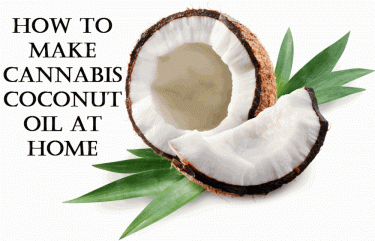Canna-Coconut Oil vs Canna-Butter in Edibles

Edibles have slowly but surely become one of the most popular means of consuming cannabis. This method has the advantage of bypassing most of the health risks attached to smoking cannabis joints and blunts. This obvious advantage has helped in making cannabis edibles very popular especially among medical marijuana users. It also has the advantage of promoting diversity among cannabis enthusiasts as different recipes for foods and drinks to be infused with weed are being tried regularly.
The diversity in the production of edibles is one of the reason why cannabis chefs utilize two special types of fat products while cooking - canna-butter and canna-coconut oil. Read on as we look into the differences between both products and why one can be taken over the other.
Cannabutter is very prominent as it is readily used for making different types of common edibles such as brownies and cookies. It should be noted that Canna-coconut oil has also been used considerably in making different sweet and savory meals to be infused with cannabis. To understand the differences between both ingredients, we must look into both products individually. This includes methods of production, advantages, disadvantages, and situations where one is to be preferred over the other.
A closer look at Cannabutter
As the name implies, canna-butter can easily be summarized as butter infused with cannabis extracts. This gives rise to a sweet and unique product of high quality that can be used in the production of different types of edibles recipes. It should be noted that it's highly important that the weed used in the production of canna-butter is of the top quality as this determines the quality of the final product. It is therefore important to ensure that the best available cannabis plant matter is used in the production of canna-butter.
Canna-butter can be prepared comfortably in the home by cooking cannabis trims or buds in butter and water. This cooking process goes on for 3 to 24 hours depending on the recipe being adopted and the type of product desired by the producer. This process is quite similar to the regular extraction process as cooking the cannabis plant ensures that needed cannabinoids, terpenes, and other beneficial compounds are extracted. While making the canna-butter, it is also important to ensure that the temperature is kept low to simmer. This will ensure that the product does not burn which will end up destroying the beneficial cannabinoids needed to give the desired effects of a euphoric high or relaxation.
Before cooking the cannabis trims or buds in water and butter, it is important to first decarboxylate the weed. This is done to activate the cannabinoids present in the cannabis trims to the form that gives activity. Cannabinoids such as THCA and CBDA exist in their acidic states in the plant matrix and must first be converted to THC and CBD through the action of heat. Decarboxylation of the weed is done by grinding and baking the weed for 30 to 40 minutes at low temperatures. This helps to ensure that a potent product is achieved at the end of the production process.
A closer look at Canna-coconut oil
Coconut oil is used in the production of canna-coconut oil due to numerous beneficial health activities. Coconut oil contains many medium-chain triglycerides which are used easily for deriving energy in the body. Medium-chain triglycerides are very easy for the body to digest. This means that the body quickly processes canna-coconut oil and distributes the gained nutrients to where it is needed. Coconut oil is used in the production of canna-coconut oil as an alternative to regular fats and oils. This move is very beneficial because studies have shown that coconut oil is useful in heart health and it helps the body to burn fat.
Canna-coconut oil can easily be produced by cooking cannabis flowers in oil and water for 8 to 24 hours. This timeline depends largely on the recipe used and the potency desired. It is important to keep the temperature very low as this helps to ensure that no cannabinoid is lost. Likewise, it helps the be rid of unwanted fats in the product. The weed must also be decarboxylated before it is used in the production of canna-coconut oil to activate the cannabinoids present in the cannabis plant matrix.
Canna-coconut oil vs Canna-butter
The comparison between canna-coconut oil and canna-butter shows that each has its advantages and disadvantages.
Canna-butter for example is very easy to make which means it easily complements sweet and savory delicacies. It is also loved by newbie cannabis enthusiasts delving into cooking with cannabis because it is easier for making common homemade edibles like cookies and brownies. Canna-butter is also very flavorful. It is very cheap and easy to procure but, it has high fat content. The downside of canna-butter is the fat and dairy content. This makes it unsuitable for vegans, those watching their fat intake, and those generally intolerant to dairy.
Canna-coconut oil on the other hand has the advantage of being nutritious and highly beneficial as a cooking oil. It is suitable for vegans and unlike canna butter fewer people are intolerant of the product. It also has a substantial fat content and the product can be easily used as a lubricator thanks to the vasodilating property of THC. The downside of canna-coconut oil is that it is less flavorful compared to canna-butter and harder to access. It also has the added disadvantage of being more expensive compared to canna-butter.
While selecting between canna-coconut oil and canna-butter, it is important to carefully understand the context of comparison before making a rash decision. In terms of the potency of the product, canna-butter gives rise to a more potent product. It also gives rise to a more flavorful product which gives a special mouth feel. Canna-coconut oil on the other hand has more medical benefits which makes it very popular among medical marijuana users.
Bottom line
Both canna-butter and canna-coconut oil are quality products used in the production of cannabis edibles. Both have their advantages and disadvantages which means the final decision on which to choose depends on the you. Do your research on each before opting for one.
CANNABUTTER AND CANNABIS OIL, READ MORE...
HOW TO MAKE CANNABUTTER AT HOME WITHOUT A MACHINE!








